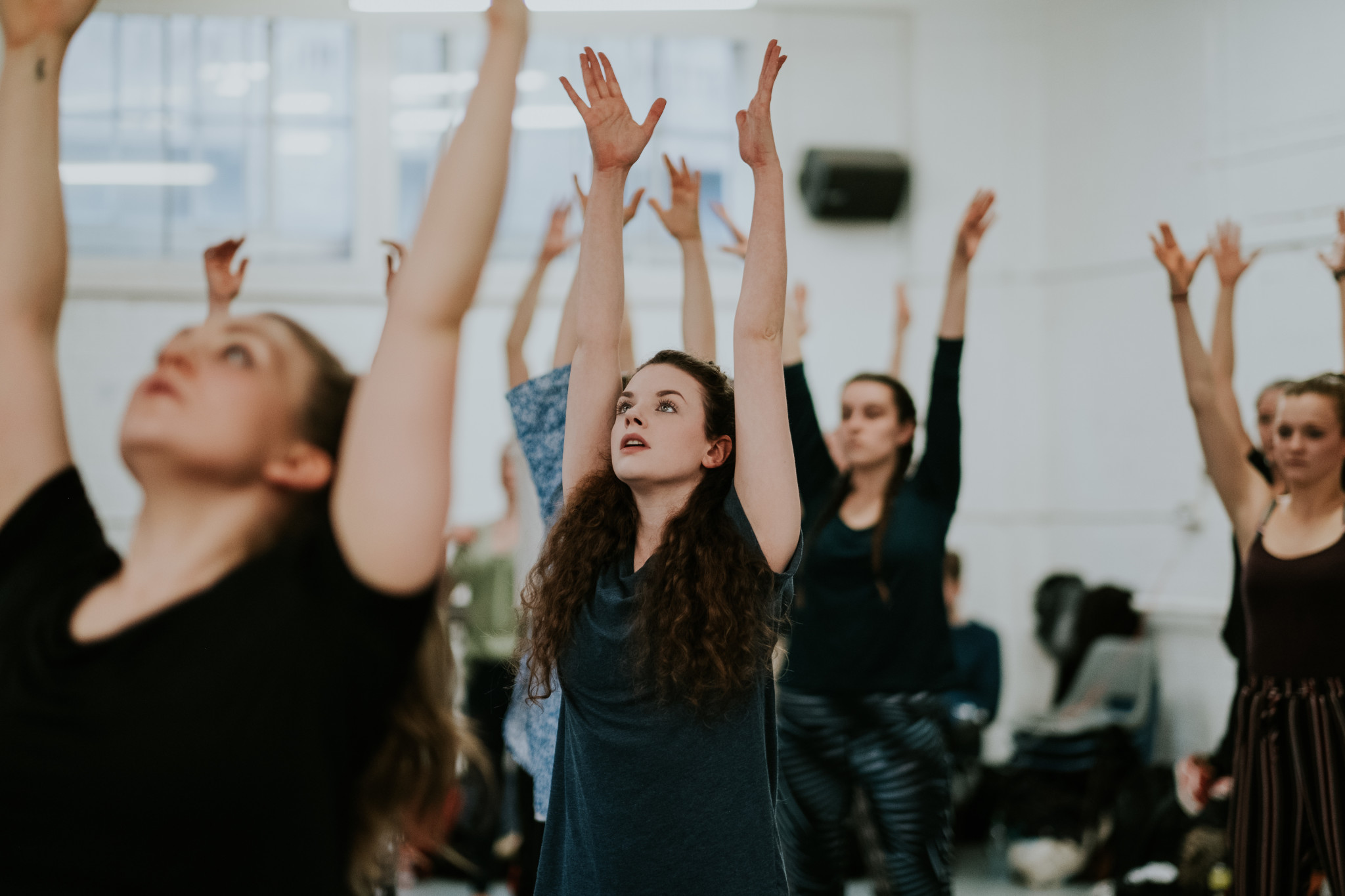Spotlight’s Performer Career Consultant Emma Dyson discusses the best advice for revamping your acting career.
In this episode of The Spotlight Podcast, we discuss all the essentials for any actor looking to inject some new life into their career.
Spotlight’s Performer Careers Consultant Emma Dyson brings her wealth of experience in guiding and advising actors in making good career choices to help us answer this question.
We cover headshots, showreels, making the most of your acting profile, setting goals and understanding your unique selling point (USP). Essential for any actor either new or returning to the industry.
20 minute listen.
All episodes of the Spotlight Podcast.
Episode Transcript
Christina Carè: Hello, and welcome to The Spotlight Podcast. I’m Christina Carè, the content manager at Spotlight. And today, we’re talking about revamping your acting career, and we’re talking with Spotlight’s own Performance Careers Consultant, Emma Dyson.
Emma, thank you for joining us.
Emma Dyson: Hello. Not at all, it’s a pleasure.
Christina Carè: It’s the new year, so I thought a good place to start would be talking to our members and non-members alike about what they can do to really get into this new year in a good way, and get their career going in a good way and set up for a very positive 2019. I want to start though, with you and your background. I know you’re trained as an actor.
Emma Dyson: I did.
Christina Carè: Can you tell us a bit about how you came to advise actors at Spotlight?
Emma Dyson: After I trained at drama school, I kind of knew that I wasn’t going to be one of those amazing actresses that I aspired to be, like Juliet Stevenson or Janet McTeer. But feeling so passionate about the industry. I kind of thought, well, how can I sort of utilise my passions and try and get some new skills to be part of an industry which I adore. So, I wrote off to many actors’ agencies and I successfully got into work with Daphne Waring, John Summerfield at Waring and McKenna, which I loved. And, I was there for many years and just worked my way up.
So the role, as an agent, you are constantly advising, putting them up for work. And so, with that in mind, after I left Waring and McKenna and came to Spotlight, it was a good fit for me to be the point of contact for actors and drama schools, drama school students onboarding, young performers to hopefully get the match fit for a terribly competitive and saturated industry. So really, it was utilising the skills that I’d learnt as a performer, then moving into representing and championing actors to now what I do here at Spotlight.
Christina Carè: And as you said, it’s such a competitive industry. I guess because it is the new year and a lot of people will be setting intentions and resolutions, and all of that sort of stuff. Can you give us a bit of an idea of the kind of advice that you tend to give people?
Emma Dyson: Sure. I mean, it really depends where the actors at. For new actors who are fairly inexperienced or maybe they’re freshly trained, you’re introducing yourself to an industry of professionals who may not have seen you at showcase, or in a drama school play. So, it’s all about the photo. That is the first thing that anyone is going to see you if they’ve not seen you on the stage or on screen. So, we’re in the visual arts.
Christina Carè: Absolutely.
Emma Dyson: You have to have a really cracking photograph. And obviously, Kate has talked to photos, and I bang on about it religiously. It has to look like you… It has to have an essence of your personality. There has to be something whereby an industry professional looks at the photo and is intrigued to then look at your showreel, the credits, what roles you’ve been cast as, to get an idea. Because as I said, being in a visual industry, we’re looking at photographs and we’re thinking of, “Oh, what can that actor play?” “What role do we see them in?” So, the photo is everything. And, I would say that even for actors who are maybe returning to the industry, it has to be a really good representative of you.
Christina Carè: So, if people are thinking about what to do first for the new year in terms of revamping their profile, a headshot might be a place to start.
Emma Dyson: Yep. Absolutely. And, I always think it’s what you can afford to pay. Photos are expensive, but it’s an investment that’s worth investing in. So yeah, start with a really good photograph. And then, I would say, If you’re not in anything, to invite an agent or a casting director, or wherever you are at whatever point in your career, it’s then about the showreel.
So again, if you don’t have professional screen work, make something. But again, the emphasis should always be on it being the most professional it can possibly look. And, I always think less is more. So, you can upload five minutes’ worth of reel, inclusive of your Spotlight membership, but that’s too much.
Christina Carè: You don’t need five whole minutes.
Emma Dyson: I don’t think so. I think you want whoever it is that’s watching the reel to want a little bit more. So, I think a good reel is between two, two and a half, three minutes.
Christina Carè: Perfect. So, really I think we’ve just had a whole episode actually on showreels. So, if you want to hear much more about that in-depth, there is another episode on that. But as you said, having a showreel is really vital. It’s kind of one of the first things that a casting director is going to look at. Because obviously they see your picture and they’re intrigued, but then they have to see you actually do something.
Emma Dyson: Yeah.
Christina Carè: Other than that though, should you be updating your profile to include all of your skills, everything you’ve ever workshopped, everything you’ve ever attended? Is that a good idea or should you just limit it to your essential training or your essential skills?
Emma Dyson: I think so. I don’t see the point in five or six lines of various workshops or short courses that you’ve done. If you’ve trained at a drama school, leave it on. And I get really upset when actors take where they’ve trained off of their profile. It’s really nice to know that someone went to Bristol, or Guildford, or Guildhall, or wherever. Or if it’s not one of those established drama schools, we want to know where it is, whether it’s international training, keep it on your profile. But, regarding the workshops, I mean, I just don’t find them that valuable. So yeah, I would leave it to whether it’s a one, or a two, or a three-year training.
Christina Carè: And, just leave it at that.
Emma Dyson: Yeah, I think so.
Christina Carè: What do you think are the most common mistakes that people make on their profiles? I think one thing that we’ve heard a lot about is writing too much, or it’s usually to do with too much rather than anything else, but do you think there are other common mistakes people make?
Emma Dyson: Not updating the profile, obviously. I think just keep it tight. Regarding skills, going back to what you were saying, any skill that can relate to character is crucial. And a lot of actors sometimes think, “Well, I won’t put horse-riding down, because that really might not be ever called upon…” Rubbish! It’s such a really fantastic skill to have. And, I think anything that you think can relate to a character, put the skill on. Casting directors are searching in the advanced search, for actors with many multiple skills. And obviously, the best chance any actor has is to be really explicit with their skillset. So, I think it’s crucial to not despair anything and think, “Well, okay, if I went in for an audition and this particular skill could get me through the door, then I need that to be searchable.”
Christina Carè: Yeah, absolutely. You need to be found by those things, that you can actually do.
Emma Dyson: Absolutely.
Christina Carè: And indeed, those sorts of rarer skills might really set you apart in some way.
Emma Dyson: Yeah. Absolutely, yeah.
Christina Carè: I want to talk through a few case studies with you in a way, because you mentioned that obviously, your advice differs a lot, depending on what stage of a career somebody is at.
Emma Dyson: Yeah.
Christina Carè: I want to start with the new graduate for this year. What advice would you give them in terms of just getting started and making that first impression? Do you encourage people to write actively to agents if they aren’t represented? Where should they really start?
Emma Dyson: Well, yeah, the agent. You are going to have a much bolder chance if you are represented. And I think it is really difficult finding the right fit with an agent. So, I think if you are a graduate who, for whatever reason hasn’t managed to sign, I think tip number one is not to worry. Actors do generate their own work. And yes, it is better to have an agent. But if you don’t have an agent, having done a year or three years at drama school, then I think your job is then to keep proactive, to keep positive, to try and get yourself in something. So, you can then obviously invite an agent to come and see you.
But also, not to forget the absolutely crucial importance of the casting director, because they’re the ones who are going to get you in. Agents and casting directors work hand in glove. And to get a good agent, you want them to have seen your work, so they know exactly how to sell you to the casting director.
Christina Carè: Right. So, in terms of approaching those people, are there very clear etiquette guidelines you can give somebody?
Emma Dyson: I think you’ve got to be really business-like, and you have to document who you’ve written to, so you don’t overwrite to them.
Christina Carè: Right.
Emma Dyson: I think there is that sort of myth that agents don’t look at everything that is sent to them. Well, of course, they do. So, don’t fret and worry that they’re being rude or they’re ignoring you. Agents, good agents get inundated with requests from agents, sorry, from actors. So, I think don’t worry, if they haven’t got in touch with you, it’s been filed, it’s been checked. So, I think note who you’ve written to, don’t overwrite to them. It’s not that you can’t write to them again but write to them with a purpose. Do you have a workshop or a short play to invite them to? I think that the rule here is not to be a pest.
Christina Carè: Right. Yeah. It’s just common politeness really.
Emma Dyson: Yes. it’s just etiquette really. But there are so many agents that are out there, so do your research. I think also if you’re a young actor new to the industry and your dream is to be with one of the big established agents, and you’re not getting any joy there; don’t ever dispel co-op agents. Because I think it’s a great way for actors to see the other side of how the industry works. And, I think when you are a young actor going into the industry, I think it can sort of feel that you’re free-falling. And I say that with experience, having left drama school myself, and just kind of thinking, “Whoa, what is this big, scary industry about?”
Christina Carè: Yeah, for sure.
Emma Dyson: Because when you train, you are introduced to casting directors and you have masterclasses and workshops, but nothing really prepares you for the industry. So, I think if you have the right photo on your profile, it’s looking cosmetically really snazzy and you’re prepared. Then you should hopefully be in an okay position to then start forging forward.
Christina Carè: And, for those who aren’t really aware, can you explain the co-op agency concept?
Emma Dyson: Sure. So co-op agents are whereas an actor, you work in the agency, and it’s all other actors. And, you don’t represent yourself for work, so the other actors will do that on your behalf. So, you’re working as an agent, if you like, whilst the other actors are also looking after your interests as an actor.
Christina Carè: So, you kind of helping each other.
Emma Dyson: Yes.
Christina Carè: It’s a very nice concept.
Emma Dyson: But, that’s a really good point actually. I think when you’re leaving drama school as an actor with other actor friends, I think it is about collaborating. If you’re not in anything and you have like-minded actor friends and you have a facility to write, of course, try and generate your own work.
Christina Carè: Yeah, totally.
Emma Dyson: I think this industry, unfortunately for actors can sometimes make you feel that you have no autonomy. So, if you can produce something, then at least you feel that you’re positively doing something, and you’re not waiting for the call of an agent or the other gatekeepers who can open the door for auditions and potential work.
Christina Carè: Yeah, absolutely. It does feel like there’s a big gap between you and those people who have the work.
Emma Dyson: Yeah.
Christina Carè: But, there is a lot of great theatre, particularly in London at the moment. There’s Vault festival, that’s a fabulous example of lots of people who write their own work and make their own work, and probably know each other from workshops or drama school, etc…
Emma Dyson: Absolutely, yeah. I’ve seen so much wonderful stuff on the fringe.
Christina Carè: Totally. Yeah.
Emma Dyson: It is just alive. So I think, as an actor don’t automatically just go for West End theatres. Do your research again, have a look at off-West End stuff and find out who casts for the companies if there is a casting director. If not, be very methodical in your approach.
Christina Carè: I want to talk to you now about a slightly different case study, which would be the returning actor. And in particular, I’m thinking here about people who have taken extended breaks, perhaps to have children, or for other reasons, illness, any other issues.
Emma Dyson: Uh-huh (affirmative).
Christina Carè: What advice do you give those people who are trying to re-introduce themselves? They might have done some work some years ago. And, I think the main concern is often about whether or not they should mention work that is old, or how they should represent themselves in a different phase of life.
Emma Dyson: Well firstly, acting is a craft and it’s like a language. If you haven’t spoken a language in a while, you’re going to get rusty.
Christina Carè: Yeah, of course.
Emma Dyson: So I think number one, do you feel match fit? And I use this overused term match fit, time and time again. But I think as an actor, you have to feel confident and I think if you are returning to the industry, things change. I think in terms of technology, and what supports and facilitates, self-tapes etc, and so on. If you have returned after a long, long spell, then you better be good at self-taping. And anyone can do that by using their phone, looking at our YouTube channel, getting all those advisory videos from casting directors around the world regarding showreels regarding self-tapes. Be prepared, do your research, go to some classes so that you do feel plugged in again. I think you have to feel physically and mentally prepared. So, with all of what we’ve spoken about with photos and your profile looking really good, I think you’re the one that does it at the end. So, you have to feel confident enough to be the one that can really nail an audition and confidence is key.
Christina Carè: Yeah, for sure. I kind of want to go into that a little bit further in the sense that, I think a lot of actors, particularly younger actors, when they’re entering the industry, their goal is to be Juliet Stevenson or someone similar, right.
Emma Dyson: Yeah.
Christina Carè: Perhaps as a returning actor, you still have those goals, but I just wonder what kind of advice you give people in terms of setting realistic goals for themselves in the industry? Because not everyone can be the next whoever.
Emma Dyson: No, yeah.
Christina Carè: But plenty of people still work.
Emma Dyson: Sure.
Christina Carè: What kind of advice could you give around that?
Emma Dyson: I think understand your unique selling point. And also, I think find out what it is you feel that you do really well. It’s great to aspire to those wonderful actors, but very few are going to reach those dizzying heights. I think you have to be realistic with your goals. It’s managing expectations. It is a saturated industry. So, how are you going to best do what you do well, and get noted for it?
So, if it is the leading lady or the leading lady’s best friend, or someone who’s very good at the classics or comedy, I think try and understand your castability. And, I think for a lot of young actors, they’re still not sure. And I think the successful actors know exactly what they do very well. So, I think it is understanding what you can do and it’s not necessarily feeling that you have to demonstrate the wardrobe of your versatility, that can come later. But I think initially, whatever it is you do, make sure you do it the best. I think.
Christina Carè: Yes, that you can do it.
Emma Dyson: Absolutely.
Christina Carè: Yeah. So, setting some reasonable goals.
Emma Dyson: Yes.
Christina Carè: Getting all of those essentials up to scratch. So the headshot, the showreel, etc.
Emma Dyson: Mm-hmm (affirmative).
Christina Carè: We didn’t mention the voicereel, but that might be another thing.
Emma Dyson: Voicereel is incredibly important of course, because aside from the physical presence of being an actor, the voice is your tool.
Christina Carè: Absolutely.
Emma Dyson: So, I think it’s crucial that you, again, with your voicereel understand how the voice can be modulated. And, I think with the reel, it’s very useful whether you want to work in radio, drama or not. To have examples of narrative, of commercial examples of how your voice can be used, something may be journalistic and something. So again, it’s, how one can use the voice. And again, if you have a voicereel, if you have your showreel, approach agents, voice over agents also, and just hope that you can generate and open more opportunities to work as an actor.
Christina Carè: Absolutely. I just want to finish on asking you a bit more about your advice. Can you give us a bit of a sense of what your advice can do for members?
Emma Dyson: Sure. I mean, I follow the lead of what the actor wants to ask. Generally speaking, or 99% of the time, the most asked question is, “How do I get an agent?” So, that gets covered quite a lot. And also, how an actor can increase their work and get more auditions. There’s never a set amount of auditions that any actor can expect over a month or six months, every actor is different.
So, it’s really advising on the photos, the reel, approaching professionals. And, for anyone that feels a little stuck in a rut, I’m always happy to get actors back on track and hopefully to get them to a place where they can, again, feel that they have a bit more autonomy, and to just manage what it is they want to do and how they get there, really. So, if I’m part of a process that works for them, I’m very happy and it’s a job done.
Christina Carè: Absolutely and it’s a wonderful way of integrating all those amazing skills that you took as an actor, helping other actors. I think that’s also really lovely.
Emma Dyson: Yeah. I understand the journey.
Christina Carè: Absolutely. Yeah.
Emma Dyson: And yeah, I didn’t make it as an actor, but I 100% understand that passion and that need to tell stories, and to share and to collaborate. It’s a wonderful industry.
Christina Carè: It absolutely is. I agree. Thank you so much, Emma.
Emma Dyson: Thank you, Christina.
Christina Carè: If anyone has any other questions, you can contact us, or ask us a question on Twitter @spotlightuk. Thanks very much.
Read more advice about starting out in this tough biz, and for more industry info, tips and advice, check out our News & Advice section.





